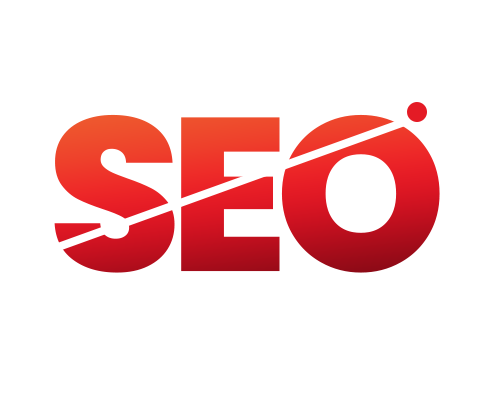Are you a beginner looking to learn the basics of SEO? If so, then you’ve come to the right place! In this blog post, we’ll provide an overview of SEO and some tips and advice for getting started with your website’s optimisation. We’ll discuss why search engine optimisation is essential and how it can help you get more online visibility, traffic, and customers. Additionally, we’ll review some best practices for building effective keyword strategies and on-page optimisations to ensure your site has the best chance at success in SERPs. Get ready – let’s dive into the world of SEO for beginners!
What is SEO?
Search engine optimisation, commonly called SEO, is improving the quality and quantity of website traffic by increasing the visibility of a website or a web page in search engine results pages (SERPs). It encompasses various techniques, including optimising content, improving website structure, and building backlinks to other search engines. The ultimate goal of SEO is to make your website appear at the top of the search engine results page when users search for specific keywords or phrases related to your business. Effective SEO strategies can maximise your online presence and drive valuable traffic to your website. While SEO may seem complicated, it’s an essential aspect of digital marketing that every business should take seriously.
What is SEO for beginners?
For beginners, SEO (Search Engine Optimisation) refers to the fundamental principles and practices of optimising a website to improve its visibility and rankings in search engines work and engine results pages (SERPs). It encompasses various techniques to increase organic (non-paid) traffic from search engines.
Here are some critical aspects of SEO that beginners should understand:
Keyword Research
Keyword research involves identifying and selecting relevant keywords and phrases that users will likely search for about your website’s content, products, or services.
Mastering keyword research is a crucial first step if you’re looking to optimise your website for search engines. It’s a process of understanding what words and phrases are commonly used by your target audience when they search for the kind of content, products, or services that you offer. Using these keywords in your website’s content can increase your chances of appearing higher in search engine result pages and ultimately attract more traffic. However, choosing the right keywords can be a challenge. It requires a deep understanding of search volume, your niche market and your ideal customer’s pain points. Understanding search intent and using keyword research tools can help you identify the most effective keywords for your website’s content. By skillfully leveraging these keywords, you can create informative and optimised content for search.
On-Page Optimisation
On-page optimisation focuses on optimising individual web pages to make them more search engine-friendly. This includes optimising meta tags (titles and descriptions), headings, and URL structures and incorporating relevant keywords into the content.
On-page optimisation is a crucial component of search engine optimisation (SEO). It involves optimising various web page elements to make them more easily discoverable by search engines. This typically includes optimising meta tags such as titles and descriptions and creating descriptive and keyword-rich headings and URL structures. Perhaps most importantly, on-page optimisation involves incorporating relevant and strategic keywords throughout the content of a web page. While it might seem like a simple concept, these on-page optimisations can significantly impact a website’s search engine rankings and overall visibility online. By focusing on these elements and ensuring they are aligned with the latest best practices, website owners can position themselves for success in today’s highly competitive digital landscape.
Content Quality and Relevance
Creating high-quality, valuable, and relevant content is crucial for SEO success. Search engines prioritise content that provides value to users, answers their queries, and satisfies their search intent.
When it comes to SEO success, quality content is king. Search engines are designed to prioritise valuable and relevant content to users, showcasing results that provide real value rather than just trying to push a particular website to the top of the rankings. Creating that kind of content takes expertise and time, but the payoff can be massive: higher rankings, increased traffic, and a better reputation in your industry. By focusing on what your audience wants to read and delivering it in a way that speaks to them, you can create a powerful asset that will help you stand out from your competitors and drive success for years.
Technical SEO
Technical SEO involves optimising the technical aspects of a website to improve its crawling, indexing, and overall performance. This includes optimising website speed, mobile-friendliness, URL structure, sitemaps and fixing technical issues.
When it comes to maximising a website’s effectiveness, technical SEO is an essential component. This search engine optimisation facet focuses on a website’s technical aspects, ensuring it operates efficiently and effectively. Optimising website speed, for example, can help reduce bounce rates and keep visitors engaged, while improving mobile-friendliness will make it easier for users to access your site from their phones or tablets. Ultimately, optimising the technical aspects can make all the difference in improving page rankings and increasing visibility. From optimising URL structure to creating comprehensive sitemaps, technical SEO ensures your site runs smoothly and efficiently.
Link Building
Building high-quality backlinks from other reputable websites is a critical SEO practice. Backlinks act as votes of confidence for your website and can contribute to improved organic search rankings.
Link building is a valuable strategy that website owners and businesses can utilise to increase their online presence and improve search rankings. By obtaining high-quality backlinks from other trustworthy websites, you can enhance your website’s credibility and authority in the eyes of search engines. These backlinks act as a vote of confidence, indicating that your content is valuable and relevant. This can result in improved visibility, traffic, and conversions. While link building is just one aspect of a comprehensive SEO strategy, it is worth incorporating into your efforts.
User Experience
Providing a positive user experience is essential for both users and search engines. This includes having a well-designed and user-friendly website, easy navigation, fast loading times, and mobile responsiveness.
User experience is crucial in the digital world. It is the critical factor that can make or break a website. A user-friendly website with straightforward navigation, fast loading times, and mobile responsiveness is what every user seeks. Providing a positive user experience is not only beneficial for users but also advantageous for search engines. A website that caters to the users’ needs and ease of use ranks higher in search engine results. Hence, designing and developing a website that provides a superior user experience is essential. When users have a pleasant experience on a website, they are more likely to spend more time on it, resulting in increased engagement and conversions. In today’s digital age, providing a positive user experience is not a luxury but a necessity.
Analytics and Tracking
Utilising tools like Google Analytics and Google Search Console allows you to track and analyse key metrics related to your website’s performance, organic traffic, keyword rankings, and user behaviour. This data helps you make informed decisions and optimise your SEO strategy.
Analytics and tracking provide essential insights into a website’s performance, organic traffic, keyword rankings, and user behaviour. Using tools like Google Analytics and Google Search Console, you can gather valuable data to help you make informed decisions and optimise your SEO strategy for improved results. With access to critical metrics, you can tailor your website’s content, design, and user experience to meet the needs of your target audience better. By analysing user engagement, traffic sources, and organic search results and queries, you can identify strengths, weaknesses, opportunities, and threats that impact your website’s online presence and make data-driven decisions that drive measurable growth.
Staying Updated
SEO is a dynamic field, and search engine algorithms evolve. It’s essential to stay updated with industry trends, algorithm changes, and best practices to ensure your SEO efforts are practical.
As the landscape of both search engine optimization and optimisation continues to evolve, it’s crucial to stay up-to-date with the latest trends and algorithm changes. Doing so may make your SEO efforts more effective than they are. To stay ahead of the curve, it’s essential to ensure you know best practices and industry standards. By visiting currently in your field knowledge, you can ensure that your website is optimised for maximum visibility and success in search engine results pages. So stay caught up – visit updated on all the latest developments in the world of SEO!
Patience and Persistence
SEO is a long-term strategy that requires patience and consistent effort. It takes time to see significant results, so staying committed and continuously refining your approach is essential.
If you’re looking to improve your online presence and reach your target audience, SEO is a strategy that can significantly benefit your business. However, it’s essential to understand that it takes more than a quick-fix solution. Patience and persistence are key ingredients to success in SEO. You may not see immediate results, but by consistently putting in the effort, you’ll eventually see the fruits of your labour. Remember that SEO is an ongoing process that requires constant refinement and adaptation. With dedication and persistence, you can create a solid online presence that will bring significant benefits in the long run.
By understanding these basic principles of SEO, beginners can lay the foundation for an effective SEO strategy and work towards improving their website’s visibility in search engine results. It’s important to note that SEO is an ongoing process that requires continuous learning, adaptation engine optimization, and optimisation.

Frequently Asked Questions
Why is SEO important?
SEO is essential because search engines are a primary source of website traffic. Higher rankings in search results can lead to increased visibility, organic traffic, and potential conversions. SEO helps ensure that your website is discoverable by search engines and meets user needs.
How does SEO work?
SEO involves various techniques and strategies that align with search engine algorithms. It includes keyword research, on-page optimisation, technical optimisation, content creation, link building, and user experience improvements. These efforts help search engines understand and rank your website accordingly.
What are keywords in SEO?
Keywords are words or phrases that users enter into search engines for information. They play a crucial role in SEO as they help determine the relevance of your content to user queries. Keyword research helps identify relevant keywords to your target keyword and in your optimisation efforts.
What is on-page optimisation?
On-page optimisation refers to optimising individual web pages to improve their visibility and relevance to search engines. This includes optimising meta tags (titles and descriptions), headings, content, URLs, and other internal links and linking structure. The goal is to provide a clear, optimised page that aligns with user intent.
What is off-page optimisation?
Off-page optimisation involves activities outside your website to improve its visibility and authority. It primarily focuses on acquiring high-quality backlinks from other reputable websites, as backlinks are an important ranking factor for search engines.
How long does it take to see results from SEO efforts?
The time to see results from SEO efforts varies depending on factors such as competition, industry, website authority search traffic, and the scope of optimisation. Generally, it takes time to see significant improvements, often several months or longer. SEO is an ongoing process that requires patience and consistent effort.
Conclusion
SEO is a powerful tool, and no matter where you stand regarding knowledge and experience, learning how to use it correctly can help you take your business further. As with any marketing strategy, the most essential part of SEO for beginners is to keep testing and adapting your approach. Feel free to experiment and adjust your plan until you find something that works. By researching, understanding and putting key SEO tactics into practice, you can ensure that as many people will see your content as possible. With the proper guidance and enough time invested in SEO, success should follow swiftly after. Good luck!






